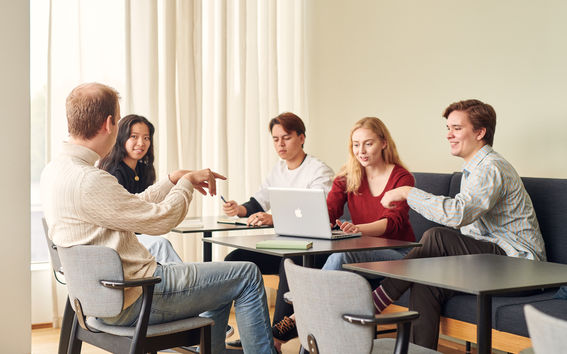Doctoral thesis: Sharing expertise is increasingly flexible - but increasingly challenging as well

In her doctoral thesis, Tuuli Hakkarainen, M.Sc. (Econ.), examines global expertise sharing from the perspective of individual experts. Multinational companies work in global teams where expertise is shared across the world. While much needed for developing new products and services, sharing expertise is a complex social process increasingly relying on the efforts of the individual experts. In particular, as individuals work in multiple projects at the same time, teamwork has become extremely flexible. Thus, finding the new best practices for effective teamwork poses challenges for the organisations and their employees, in particular.
‘It is not always easy to get things done over distance. We can’t walk into the colleague’s office for a quick question. We can’t rely on well-established team routines that have worked in the past. This means that misunderstandings cannot be always avoided. We have all experienced this during the global pandemic,’ Tuuli Hakkarainen says.
Specialisation that is needed to become an expert easily becomes a barrier in collaboration
What is often emphasised is that in global teamwork, misunderstandings are often associated with cultural differences. However, as project teams combine expertise from different fields, Hakkarainen’s study emphasises what can be called a “language of expertise”. The thesis work draws from in-depth interviews with different functional experts (e.g. engineers, specialists) as well as observing their team interactions. Both show the complexity related to how expertise is shared and for example, how experts talk at work.
‘Individuals can use different terms although they essentially talk about the exact same thing and just think they disagree. What makes these misunderstanding particularly difficult is that they can be hard to detect as our taken-for-granted assumptions tend to be deeply rooted. It is interesting that the specialisation that is needed to become an expert in the first place, in collaboration easily becomes a barrier’, Tuuli Hakkarainen explains.
According to Tuuli Hakkarainen, to make global teamwork successful in the increasingly fragmented organisations, understanding individuals is the key to find the best ways to collaborate.
‘Although it can be difficult, everyone has the possibility to make an extra effort to being on the same page with others. Participants in my study emphasised that it is often useful to stop and think whether a misunderstanding relates directly to the common task or could be explained by differences in the work environments, or if the source of tension is expertise-related. By taking time to figuring this out is the way to improve how we work together.’
The doctoral thesis demonstrates that to understand effective expertise sharing, it is useful to first tune in to the everyday work of individuals to then know what types of structures can truly support collaboration. For example, organisations could go beyond the focus on technology enabling global teamwork to emphasise the interpersonal skills of their employees and allow new project teams enough time to get to know each other across different locations and teams.
In June 2019, prestigious Academy of International Business (AIB) granted Doctoral Candidate Tuuli Hakkarainen the Award for the Best Doctoral Dissertation Proposal in the field of international business.
The doctoral thesis of Tuuli Hakkarainen, M.Sc, "Sharing expertise within the MNC" will be publicly examined on Friday, 11 December 2020. The public defense will be organised via remote technology. The Zoom link will be published on the event page a day before the defense at the latest.
Read more news

Apply Now: Unite! Visiting Professorships at TU Graz
TU Graz, Austria, invites experienced postdoctoral researchers to apply for two fully funded visiting professorships. The deadline for expressions of interest is 20 February 2026, and the positions will begin on 1 October 2026.Soil Laboratory Exhibition – Exploring the Dialogue Between Human and the Earth in Utsjoki
Soil Laboratory explores the relationship between humans and the earth as a living landscape through ceramic practices in Utsjoki.
The Finnish Cultural Foundation awarded grants for science and art
A total of 15 individuals or groups from Aalto University received grants






